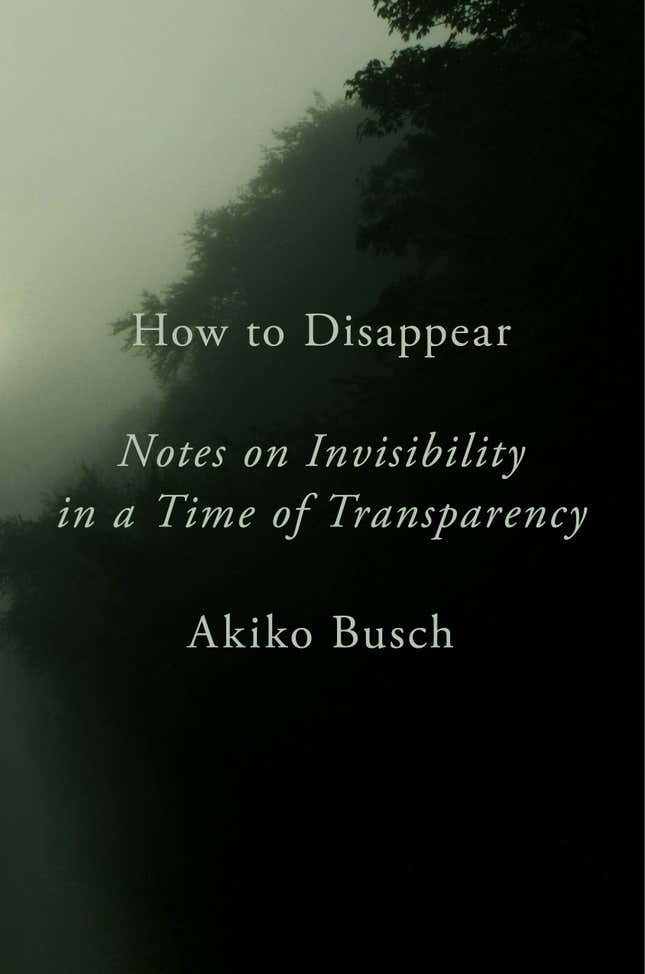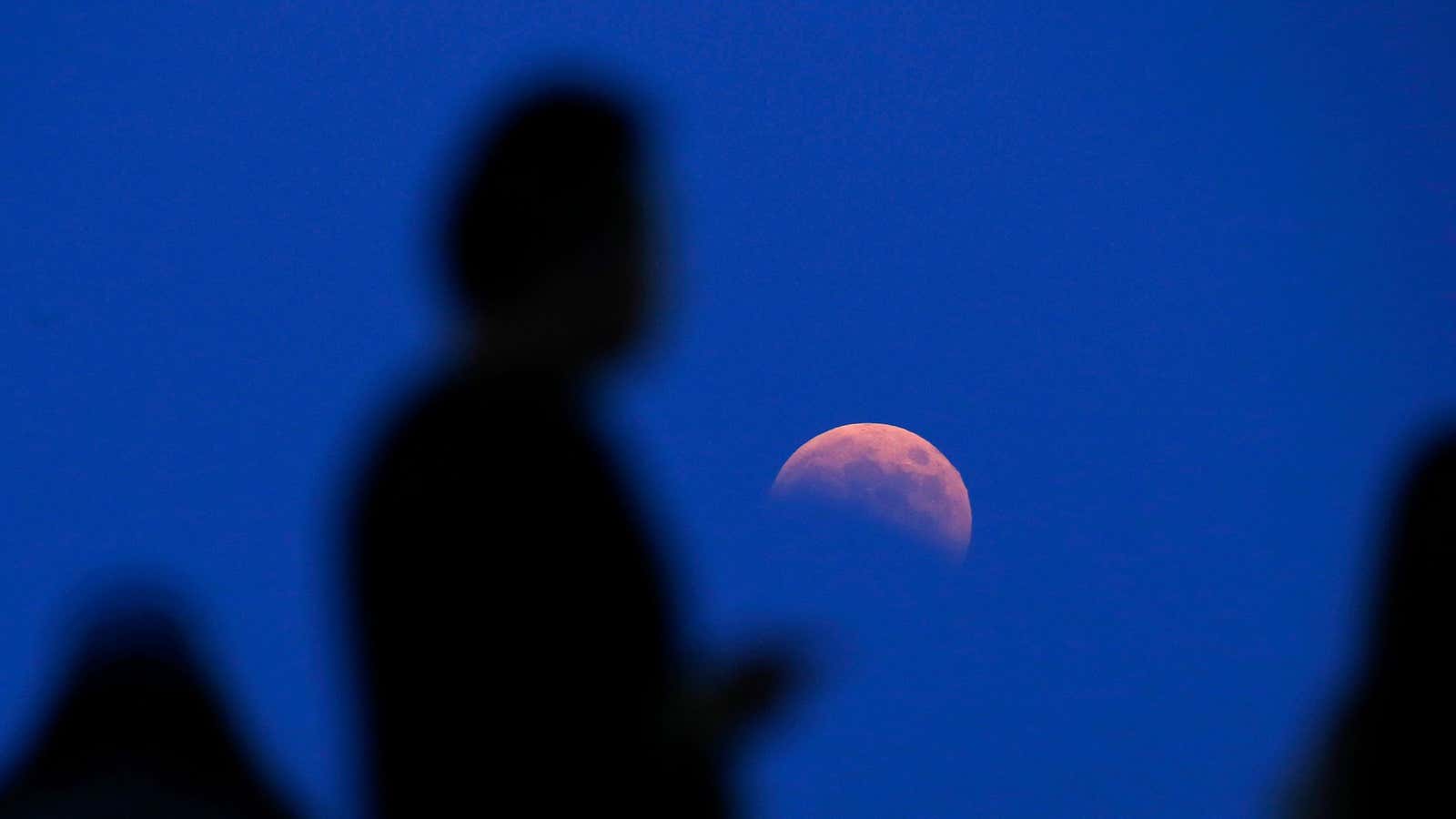Transcendentalist writers will tell you that a quiet walk through a forest can upend your universe. It happened recently to Akiko Busch, author of How to Disappear: Notes on Invisibility in a Time of Transparency, a survival manifesto for the social media age disguised as a collection of personal essays.
Observing creatures in the wetlands of Hudson Valley, New York, where she lives, Busch writes:
In the woods no more than an hour, I am struck anew by invisibility and its improvisational choreography, as a necessary condition of life. I am reminded of the grace of reticence, the power of discretion, and the possibility of being utterly private and autonomous yet deeply aware of and receptive to the world. If I am enchanted by staying out of sight, it is because such behavior seems so rare in our own species. In recent years, we have been more preoccupied than ever by the question of how to stay in view.

In 11 chapters, Busch offers a litany of exit strategies—a field guide she calls it—from today’s hyper-connected world. She argues for the utility of “going dark” as a counterpoint to our neurosis with tracking, checking in, and geotagging. Maybe not broadcasting our every joy and disappointment can be refreshing, if not transformational, she suggests.
I observed this kind of restraint at a business lunch in Yoshino, Japan. With every course, my companions—mostly dads—whipped out their mobile phones and contorted their bodies to capture those all-too familiar overhead plate close-ups. In amusement, I commented that it was nice to see that Instagram foodie habits were alive and well in rural Japan. But the pictures were actually not for social media, they clarified. It turns out the snapshots of salmon spaghetti and red bean parfaits were for themselves—private mementos of a good meal and the good company that day.
Busch’s book isn’t kindling for neo-Luddites. She doesn’t hate the internet, despite what some critics suggest. A close reading of her lyrical prose reveals that she’s simply calling for balance. “It is not retreating from the digital world but about finding some genuine alternative to a life of perpetual display,” she explains.
In parts, How to Disappear can feel dense with one too many examples. Within a few pages, Busch flits from homespun recipes for invisible ink, her father’s redacted CIA file, a MoMA exhibit about dust, the invention of the Signal app, Robert Rauschenberg’s Erased De Kooning, and an online ghost poetry experiment—invisibility is an elastic concept after all. Busch begins chapters with a charming personal anecdote that you wish she’d continue with rather than check off other examples. But perhaps her choice to not make the book so autobiographical is a demonstration of how an essayist writing in the first person can seize the privilege of being opaque—or partially invisible—to the reader.
Common to Busch’s myriad narratives is an argument for the reduction of the ego. “I learned that it was possible for our empathy to grow when the self disappears,” she writes. Her words are consolation for those who feel weary of having to constantly be billboards of their accomplishments and startups. What a relief to not always be on cue for cameras and video conferences or have hot takes on every single thing. Embracing invisibility means allowing ourselves a time-out. Keeping a low profile is a position of power.
An expert weaver of words, Busch’s passages can sound so beautifully melodious at times that they register as poetry. But make no mistake, at the heart of How to Disappear is an urgent appeal for change, for the sake of the planet. “There will be nine billion of us soon,” warns Busch, echoing her 2013 book The Incidental Steward. “We have to reassess our place in things. Part of that may have to do with how we reevaluate our identity, how we imagine a reduction in scale.”
